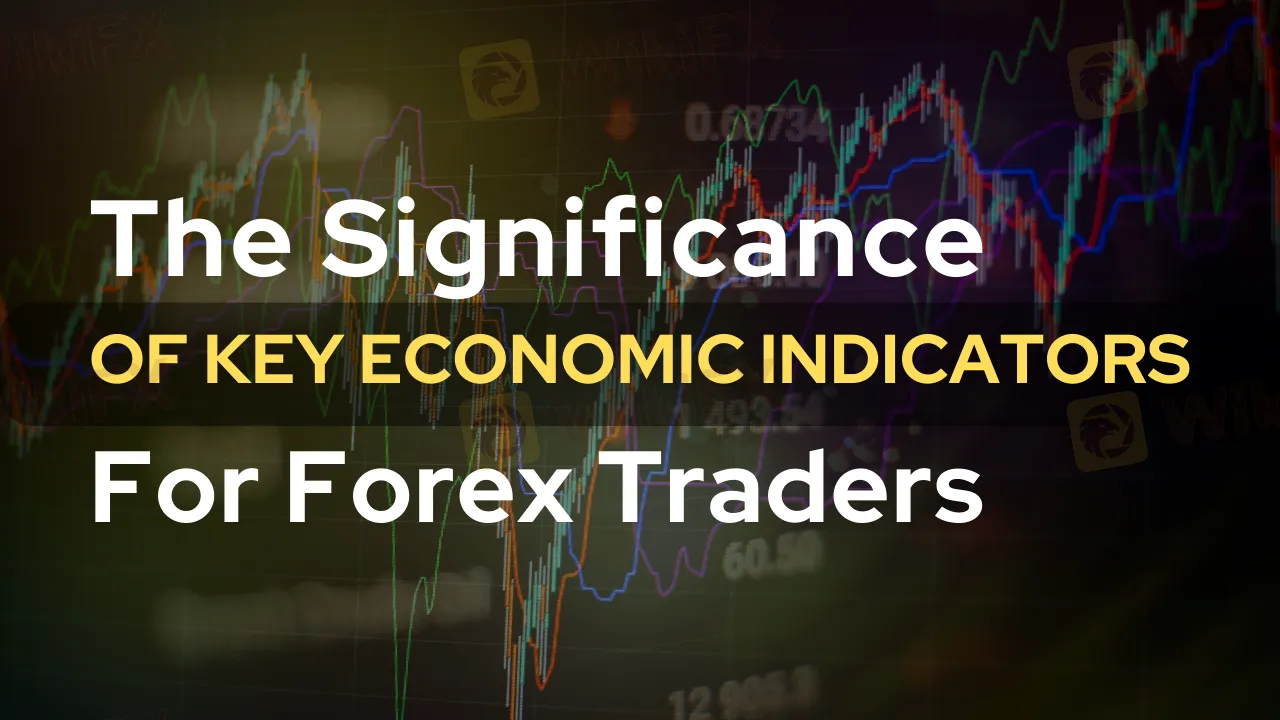简体中文
繁體中文
English
Pусский
日本語
ภาษาไทย
Tiếng Việt
Bahasa Indonesia
Español
हिन्दी
Filippiiniläinen
Français
Deutsch
Português
Türkçe
한국어
العربية
The Significance of Key Economic Indicators for Forex Traders
Abstract:Discover the pivotal economic indicators influencing forex trading, from interest rates to GDP and employment data. Learn how these factors drive currency fluctuations and how traders can navigate the complexities of global events for informed decision-making in the forex market.

Forex trading, which involves the exchange of one currency for another on the foreign exchange market, is heavily influenced by economic indicators. These indicators provide insights into the health and direction of an economy, which in turn can cause fluctuations in currency pairs.
Here's a deeper dive into some of these pivotal economic signals
Interest Rates
Definition: Interest rates determine the cost of borrowing money. When a person or company borrows from a bank, they pay an interest rate on top of the principal amount.
Impact on Forex: High-interest rates can lead to a stronger currency as it offers better returns to foreign investors. Conversely, lower interest rates can weaken a currency.
Broader Economic Implications: High rates can deter businesses from taking loans, thus impeding investments, while encouraging savings over expenditure by consumers. Conversely, low rates can boost business investments and consumer spending.
Trading Challenges: Rates alone aren't decisive. Even if a rate remains unchanged, market reactions can be unpredictable due to various other economic factors.
Consumer Price Index (CPI)
Definition: CPI measures inflation, i.e., the rate at which the general price level of goods and services rises, reducing purchasing power.
Importance for Traders: Inflation directly influences monetary policies. Central banks, like the Federal Reserve (Fed), aim to keep inflation around a target, often 2%. High inflation can lead central banks to increase interest rates to stabilize the economy, affecting currency strength.
Real-world implications: Rising CPI without a corresponding increase in wages can burden consumers. They may face challenges in affording necessities, which can slow down overall economic growth.
Gross Domestic Product (GDP)
Definition: Represents the total monetary value of goods and services produced by a country over a specific time, signaling the health of its economy.
Implications for Forex: A robust GDP growth often strengthens a currency because it indicates a prosperous economy. However, extremely rapid growth might incite inflationary fears, leading to higher interest rates and mixed reactions in forex markets.
Employment Data
Definition: This metric offers insights into a country's job market. Components include unemployment claims, unemployment rate, hourly wages, and reports like the U.S.'s Non-Farm Payrolls (NFP).
Relevance to Traders: Employment data is a direct indicator of consumer spending power. A strong job market (low unemployment and rising wages) can boost a currency as it suggests higher consumer spending and, consequently, economic growth.
Caveats: Rising employment without matching wage growth can be a negative signal, as it suggests that the quality of jobs created might be low, or the benefits of economic growth aren't being equally distributed.
Other Factors to Consider
Forex markets are complex and influenced by various geopolitical and economic events. Thus, while these indicators are paramount, traders should also consider political stability, global events, trade balances, and other country-specific news.
In Conclusion
Forex trading requires a comprehensive understanding of both technical and fundamental analysis. Economic indicators provide critical insights into how a country's currency might move, but traders must interpret them in the broader context of global events. By staying informed and understanding the interconnected nature of global economies, traders can make more informed decisions in the dynamic world of forex trading.

Disclaimer:
The views in this article only represent the author's personal views, and do not constitute investment advice on this platform. This platform does not guarantee the accuracy, completeness and timeliness of the information in the article, and will not be liable for any loss caused by the use of or reliance on the information in the article.
Read more

Why More People Are Trading Online Today?
Discover why online trading is booming with tech, AI, and a push for financial freedom. From stocks to crypto, it’s a thrilling hustle for all.

SEC Ends Crypto.com Probe, No Action Taken by Regulator
The SEC has closed its investigation into Crypto.com with no action taken. Crypto.com celebrates regulatory clarity and renewed momentum for the crypto industry.

Bitpanda Secures Full Broker-Dealer License in Dubai
Bitpanda has officially obtained a full broker-dealer license from the Dubai Virtual Assets Regulatory Authority (VARA), marking a significant milestone in its international expansion. This approval, which follows preliminary authorization granted three months earlier, enables the European digital asset exchange to introduce its comprehensive suite of virtual asset services to investors in the United Arab Emirates (UAE).

Interactive Brokers Expands Crypto Trading with Solana, XRP, Cardano, and Dogecoin
Interactive Brokers adds Solana, XRP, Cardano, and Dogecoin to its platform, enabling U.S. and U.K. clients to trade crypto 24/7 with low fees.
WikiFX Broker
Latest News
Why Are Financial Firms Adopting Stablecoins to Enhance Services and Stability?
Experienced Forex Traders Usually Do This Before Making a Lot of Money
Octa vs XM:Face-Off: A Detailed Comparison
When High Returns Go Wrong: How a Finance Manager Lost RM364,000
Bridging Trust, Exploring Best—WikiEXPO Hong Kong 2025 Wraps Up Spectacularly
Fidelity Investments Explores Stablecoin Innovation in Digital Assets Sector
Interactive Brokers Expands Crypto Trading with Solana, XRP, Cardano, and Dogecoin
SEC Ends Crypto.com Probe, No Action Taken by Regulator
Why More People Are Trading Online Today?
Gold Surges to New Highs – Is It Time to Buy?
Currency Calculator







